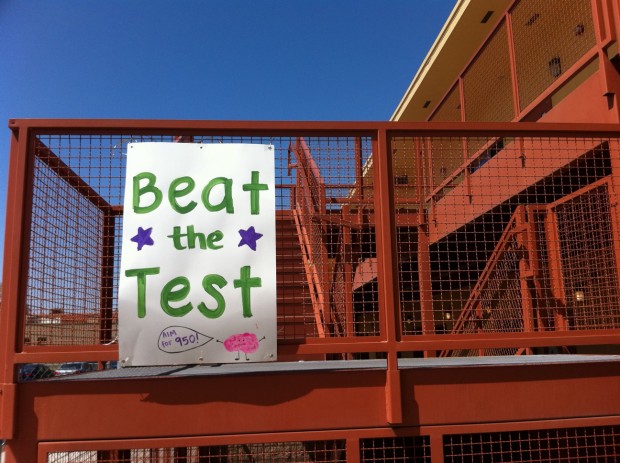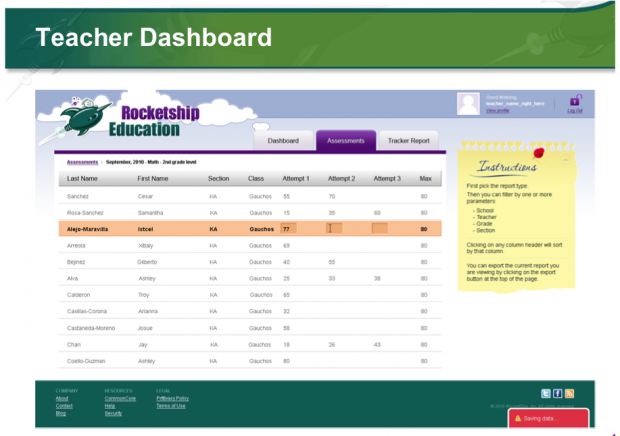 Test scores are very important to Rocketship Education, a cluster of three charter schools in San Jose, California.
Test scores are very important to Rocketship Education, a cluster of three charter schools in San Jose, California.
One of Rocketship's biggest points of pride is the high API score at its flagship school, Rocketship Mateo Sheedy Elementary in San Jose, where 91% of students qualify for free or reduced lunch. Rocketship scored 925, the same as the average of Palo Alto School District, a much more affluent community nearby.
But that’s not the only score the network focuses on. Rocketship assesses students every eight weeks to make sure they’re on track. “Because we test them so frequently, we have information gradually, so we can put interventions in place to make sure they get to their big goal at the end of the year,” says Jaclyn Vargas, a literacy teacher at Rocketship. “It’s not like we only test them in September and in June, and say, ‘Why didn’t they meet that goal?’”
For Vargas, this kind of data-driven instruction balances long-term vision with shorter, day-to-day planning, objective-driven goals.
“This is how will we truly know if we’re meeting standards and serving our students to the best of our ability,” she says. “It allows me to plan more strategically, we’re more invested as teachers and we invest students at a higher level because they know what they’re reaching for by end of year.”


